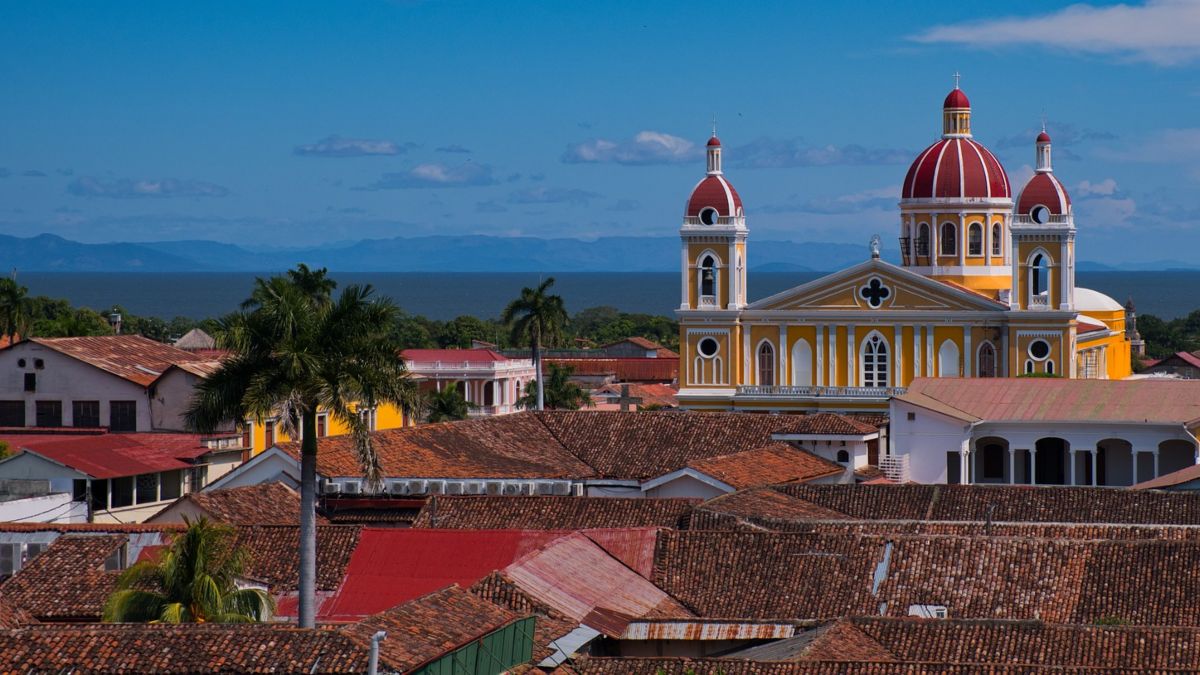A look at the concept of remote working in Costa Rica and how it could be a major boost for tourism in a post-pandemic world.
One of the positive things to come out of the COVID pandemic -the only positive thing? – is how it’s forced us to look at how we work and view the workplace.
The concept of remote work and digital nomadism (I still hate that term) is nothing new. We’ve been writing about it for years. A reason we built this site was to inform potential remote workers about using Central America as a base. I’m a remote worker myself. It’s nothing new at all.
Pre-pandemic, remote work always seemed like something other people did. You know, your hipster friend or your techie geeky buddy who drinks weird types of coffee. Or your online entrepreneur buddy, always tweeting about online money-making ideas. Or your ever-broke starving artist, always refusing to give in and go get a “real” job.
So you’re a digital nomad and you’re thinking of moving to tropical Central America. But which country is going to work best for you?https://t.co/Ix6zs6EknM#CentralAmerica #digitalnomad
— CentralAmericaLiving (@VidaAmerica) April 5, 2018
That was pre-pandemic. In the old days, before March 2020 hit us all like a steamroller.
Now, post-March 2020, remote work is the norm. It’s not only for those types of people anymore. Remote work is for everyone. Most of my friends in the UK now work remotely instead of commuting to and from the office. Many of them tell me their offices have no intention of reopening after COVID.
Companies have discovered that going remote doesn’t have a negative impact on employee performance. In fact, studies show that remote work enhances performance. And then there’s the question of costs. Businesses are finding they like saving all that money each month they used to spend on city center rents.
The fact is, COVID has made remote work mainstream. It’s forced both companies and employees to look at how they operate and do their jobs in a different way.
Remote work preferences and policies have been drastically influenced by the COVID-19 outbreak. Learn how remote work may become the “next normal.” https://t.co/cenA0DVuod
— Gallup Workplace (@GallupWorkplace) May 4, 2020
And like the freedom-loving digital nomads, online entrepreneurs, and creatives who paved the way before them, they’re liking what they find in this new world.
It’s safe to say that an unintended workplace revolution has taken place this year. For a lot of people, there’s no going back now. Remote work as a mainstream fixture is here to stay.
Which also means something else.
It means people can choose to remote work from wherever they like. And that’s what they’re starting to do. I mean, if you can work wherever you like, why not take advantage of working somewhere tropical, right?
Somewhere you can combine your work with the type of vacation you always used to save up for back in those old chained-to-the-office days?
Somewhere like Costa Rica.
Like remote work itself, the concept of remote work in Costa Rica is nothing new. Costa Rica’s climate and lifestyle were always a draw for your traditional digital nomad. And the internet has improved over the years. It’s easier than ever to stay connected in Costa Rica.
The arrival of @ItellumCR‘s satellite internet is game changing for both remote communities and remote workers in Costa Rica, especially when more people are staying in and working from home.#CostaRica #SatelliteInternet #remoteworking https://t.co/fmTC1OpdfD
— CentralAmericaLiving (@VidaAmerica) September 23, 2020
US expat Shay Tippie is a remote worker in Costa Rica.
Actually, to give Shay her due, she’s more than a remote worker. She’s a Costa Rica travel consultant and remote work specialist for the Namu Travel Group. Shay’s lived in Costa Rica since 2006, but hasn’t needed to put on a proper pair of work shoes since way before then.
“I work remotely from around Costa Rica as part of my job is to travel and stay at our hotels and properties. When I’m not on the road, I’m working from my home in Escazu,” she says.
“I also spent time in South America a few years ago and set up my own remote working vacation from Medellin, Colombia and Buenos Aires, Argentina.
“The ability to work remotely has always been one of the highlights of my job, and of course since I love travel so much being able to combine both working and traveling and exploring new places is a dream come true!
“For me, it also gives me inspiration and a fresh outlook on life and my work and it’s the perfect way to recharge my batteries. It’s so exhilarating being able to work in the morning, take a break mid-day to explore some sights, work a bit more, and then out on the town to experience a new city and different restaurants, nightlife etc. Working remotely breaks up the monotony of the daily grind we all find ourselves in and it’s a way to bring back excitement and wonder to life. It makes work FUN again!”
Freelancers & remote workers are on track to become the US workforce majority! With Costa Rica’s government officials discussing 1 year tourist visas for workers, now’s your chance to work from paradise: https://t.co/D7wXd7Uz1w #CostaRica #WorkFromHome #RemoteWork pic.twitter.com/IZBylXBPaL
— CostaRican Vacations (@CRVTravel) October 7, 2020
Strategic consultant and business coach Nicole Hudson also works remotely in Costa Rica.
Like Shay, Nicole sees living in Costa Rica as therapeutic, as a way to reconnect with herself and find inspiration. The beach community of Santa Teresa on Costa Rica’s Nicoya Peninsula is a perfect place for Nicole to run Simply Hudson.
“I fell in love with Costa Rica on my first visit for its beauty, pura vida lifestyle, and focus on nature and the environment. It’s a place that helps me find balance in my day to day, disconnect from stressors, and reconnect with nature,” she says.
“I left my home country to escape the rat race and daily grind. I found that while I had the markings of success – had checked the boxes, so to speak – the pursuit of material things was not a source of happiness.
“Learning about new cultures and perspectives has also enhanced my work and connections with colleagues. I have new tools to release stress, build deeper connections with those around me and balance my high productivity habits with living a full life.”
Santa Teresa is one of Costa Rica’s jewels. Here you’ll find miles of jungle-backed beaches & a laid-back, small-town vibe. If you’re looking for a private beachfront rental, we have some incredible options to meet your needs! #CostaRica #Vacation #Rental https://t.co/6C1DRjbxam pic.twitter.com/LiRfn0JOQy
— CostaRican Vacations (@CRVTravel) September 9, 2020
Shay and Nicole both came to Costa Rica pre-pandemic. Both cottoned on to the whole remote work deal a long time before COVID made it mainstream.
They know how working remotely brings a new self-awareness and positivity to both professional and personal lives. That’s something in this new normal, a whole plethora of new remote workers are finding out for themselves.
In an age of more restricted travel, the concept of remote work in another country is about to take off in a big way.
After all, if you’re working from home anyway, there’s no need to tie yourself down to a week or two abroad once a year. You can base yourself abroad for as long as you want and explore your new country at weekends while working poolside during the week.
Since COVID, more than a few countries have realized this, and have created legislation to attract remote workers.
Barbados and a bunch of other Caribbean islands have jumped on the concept. Ditto European destinations like Georgia and Portugal.
Log on in paradise: The exotic destinations inviting remote workers https://t.co/GOOwW3Faxi via @CNNTravel #remotework #tourism
— 100 Travel Stories (@ovi100travel) September 24, 2020
In September, lawmakers in Costa Rica presented a new bill to the legislature outlining a remote worker visa to attract more Shays and Nicoles.
If passed, the law would allow remote workers to stay for a year in Costa Rica with an extra six months if required.
During that time, their out-of-country-earnings would be tax exempt and the worker wouldn’t have to jump through the usual residency or visa run hoops.
Given Costa Rica’s current fiscal crisis and other priorities right now, it remains to be seen if this bill will pass anytime soon. Costa Rica isn’t exactly known for its speedy legislature.
But the fact Costa Rica is even discussing this is a major positive in itself.
Costa Rica one-year remote work visa for digital nomadshttps://t.co/5FS8dwMyWQ
— CostaRicaLaw (@lawincostarica) October 6, 2020
Tourism entrepreneur Colin Brownlee agrees.
A long-term expat and owner of Puerto Viejo’s Banana Azul Hotel, he’s been pushing for some sort of remote worker legislation since the pandemic evaporated regular tourism in Costa Rica.
“After the coronavirus pandemic passes, the country is going to need to diversify to make up for the revenue lost from halting tourism. And attracting this type of visitor/immigrant—one that is talented and skilled—will not take a lot of investment,” he says.
“How attractive is living in big cities looking right now? Everyone feels trapped in small spaces and craving outdoors and fresh air.
“Wouldn’t it be attractive to live in a place like Costa Rica where your cost of housing is less then half and you get much bigger spaces to live along with an ideal climate? You would have easy access to beaches, mountains and nature. Many places offer pools and all other types of amenities unheard of for the average worker.
Friendly people, great climate, affordable, good broadband, and beaches and sloths, too: Costa Rica offers the ultimate opportunity for remote professionals. https://t.co/n9vrrHAl4b
— Costa Rica Tourism News (@CRTourismNews) May 28, 2020
“Working and living here would inspire and foster Costa Rican workers as well,” continues Brownlee.
“Having a large community of remote workers could create a very strong Latin American tech hub. There would be huge added benefits in the way of new businesses to service this class and increased travel to Costa Rica in the way of tourism and business travel.
“This can also accommodate temporary stay workers as well. Hotels and villas can look at monthly packages to service this type of guest. Right now, it is mainly just offered in hostels with co-working spaces. But I believe there’s a large audience that wants private, more substantial accommodations. A three-month visa would suffice for many, but if easy renewal was available, it would encourage longer stays.”
COVID has changed the face of global tourism, even as travel restrictions ease around the world. The demand for more long-term spaces to accommodate remote workers in Costa Rica will grow, with or without legislation passing.
Anyone familiar with Costa Rica right now knows the country is in serious financial trouble. Legitimizing the concept of remote working in Costa Rica, and attracting a brand new class of resident could go a long way towards bringing in much-needed revenue.
It’s time we got behind what’s now the new normal and made remote working in Costa Rica easier all-round for everyone.
James Dyde is the editor of www.centralamerica.com. He lives in Escazu, Costa Rica.




